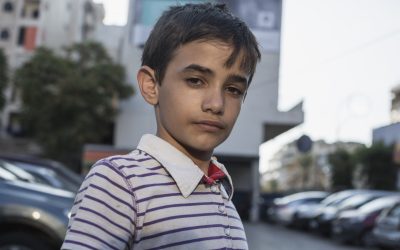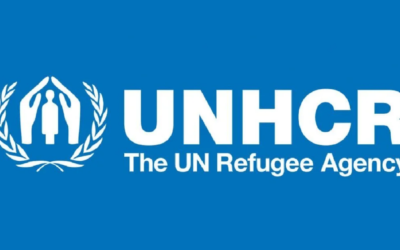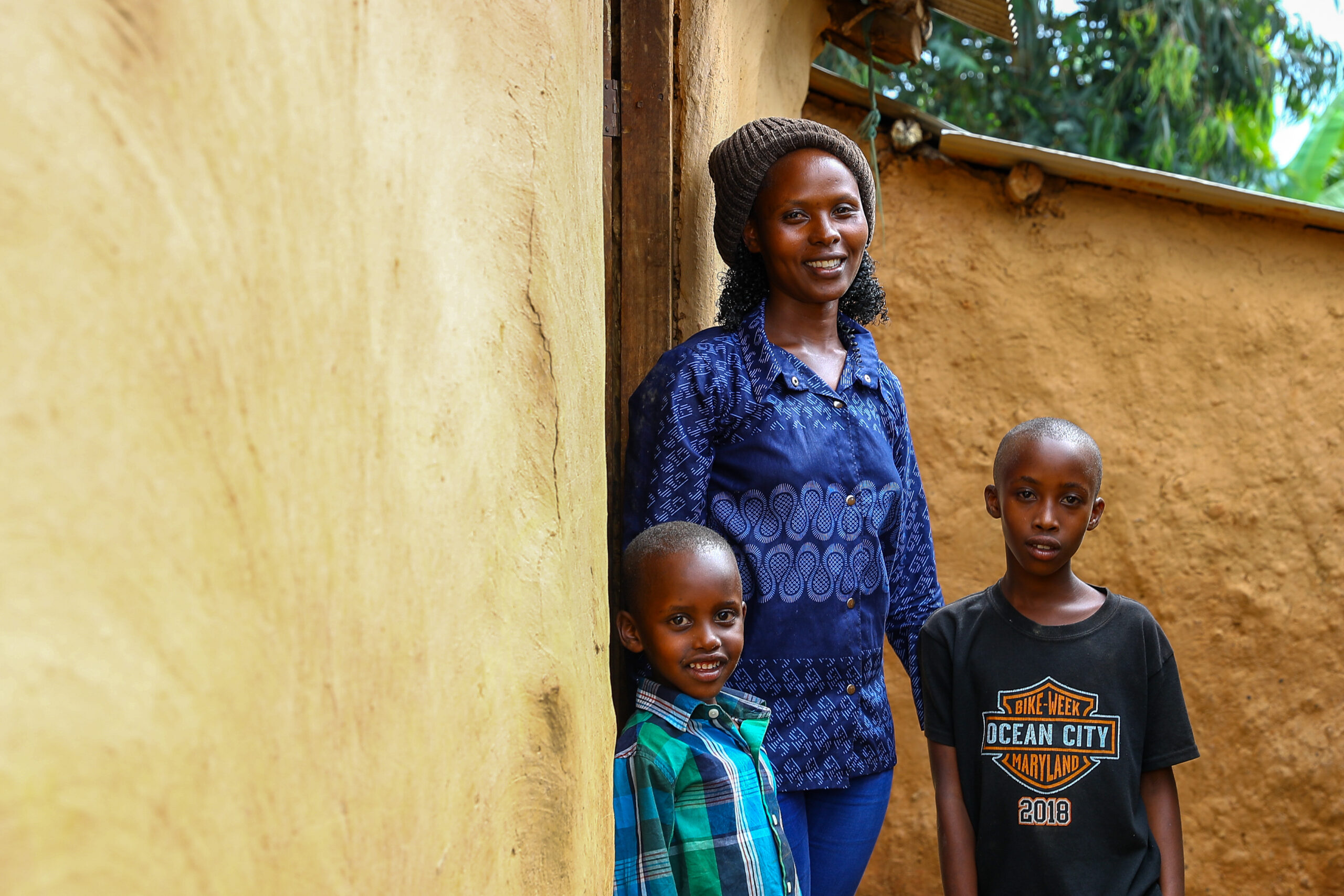
Providing refugees a new chance in life
Many refugees cannot return home because of continued conflict, wars, and persecution, and many of them live in perilous situations or have specific needs, which means that they cannot receive adequate protection in the country where they have sought refuge. Instead, they need resettlement to a safe, third country. In such situations, UNHCR helps resettle refugees.
The Nordic countries have long been important partners for resettlement – both in terms of resettling refugees, as well as supporting UNHCR and the capacity of the global resettlement system.
What is resettlement?
Resettlement is an invaluable tool to protect the refugees whose life, liberty, health, or fundamental human rights are at risk in the country where they have sought refuge. The resettlement process means the transfer of refugees from their country of asylum to another country that has agreed to receive and resettle them.
UNHCR helps resettle refugees, but the process is a collaborative venture. It can only be achieved through close collaboration with various partners, particularly the resettlement States who voluntarily provide resettlement quotas and receive refugees for resettlement, but also through other international organizations such as the International Organization for Migration (IOM) and civil society.
UNHCR identifies and refers refugees for resettlement in accordance with established criteria and after determining their eligibility for international protection. Based on individual interviews or through dossier selection, States then decide whom to offer resettlement. Before the selected refugees depart from their country of first asylum, they go through a comprehensive process, including health and security checks as well as preparations for their new life in the resettlement country.
Of the millions of refugees around the world, less than one per cent of them are resettled each year. There is a crucial and continuous need for additional resettlement opportunities; UNHCR therefore continues to appeal for resettlement countries to increase their quotas and for new countries to step forward and join the resettlement programme.
Who are the resettled refugees?
UNHCR’s operations in refugee situations across the world identify refugees for resettlement in accordance with established submission categories. These are based on heightened protection risks, vulnerabilities, and special needs. Refugees who are identified for resettlement therefore include for example women and girls at risk, survivors of violence and torture, children at risk, and refugees with legal, medical, or physical protection needs that cannot be met in their current country of asylum.
Before refugees are submitted for resettlement, UNHCR has determined their need for international protection. Each year, UNHCR systematically maps and compiles the global refugee resettlement needs.
UNHCR urges all States to be guided by the internationally recognized categories on eligibility, global needs, and priorities when deciding whom to admit for resettlement. UNHCR appeals that countries’ resettlement programmes are established primarily with reference to individual protection needs, and that they remain diverse, non-discriminatory, and flexible.
Why resettlement?
- Resettlement is an important protection tool to meet the specific needs of refugees whose fundamental rights are at risk in the country where they sought asylum
- Resettlement offers refugees a long term solution by ending their displacement
- Resettlement is an international responsibility sharing mechanism because it signals support for countries hosting large refugee populations.
With a record high level of forced displacement globally – and a multitude of conflicts and protracted crises forcing people from their homes with dwindling prospects of a swift return – resettlement is becoming increasingly important to ensure protection for some of the world’s most vulnerable refugees and provide them a chance for a future.
Today, the responsibility for hosting and providing asylum to refugees is not equitably shared in the world, as the majority of refugees are hosted in neighbouring countries and overwhelmingly in developing regions.
Resettlement is a safe and orderly measure to ensure more responsibility-sharing and to show solidarity with the countries hosting the most refugees. It also provides a safe and legal pathway to protection – hereby reducing the incentives for onward movement and desperate irregular journeys.
Resettlement to the Nordic countries
For decades, the Nordic countries have been strong resettlement partners to UNHCR and have welcomed refugees via resettlement. Denmark since 1979, Finland since 1985, Iceland since 1995, Norway since the 1980s and Sweden since 1950.
Several countries in the region are also supporting UNHCR’s Global Resettlement Program, which helps to build capacity and develop the program.
See also Frequently Asked Questions about Resettlement – UNHCR’s Resettlement Handbook
“I had lost hope that my life could be anything different”
Angelique Umugwaneza fled Rwanda with her family during the genocide and was fleeing for seven years, crossing the entire Congo on foot, before she and her sister were resettled to Denmark.
After years of only thinking about survival, the safety and calm of her new country allowed her to start dreaming and thinking about the future.
Today, Angelique has several university degrees and has been working with humanitarian and development work in many different countries.

Reports & other resources
Resettlement factsheet
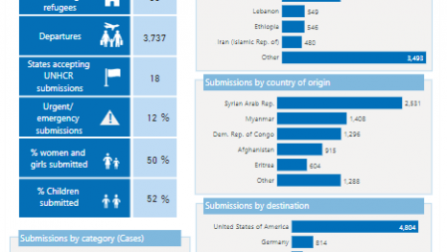
Resettlement in 2023 at a glance: Data on submissions and departures, most common countries of origin, asylum and resettlement as well as info on demographics and resettlement categories. Link here.
Roadmap 2030
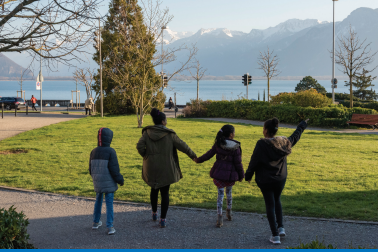
Read UNHCR’s Third Country Solutions for Refugees: Roadmap 2030 here.
Resettlement data finder
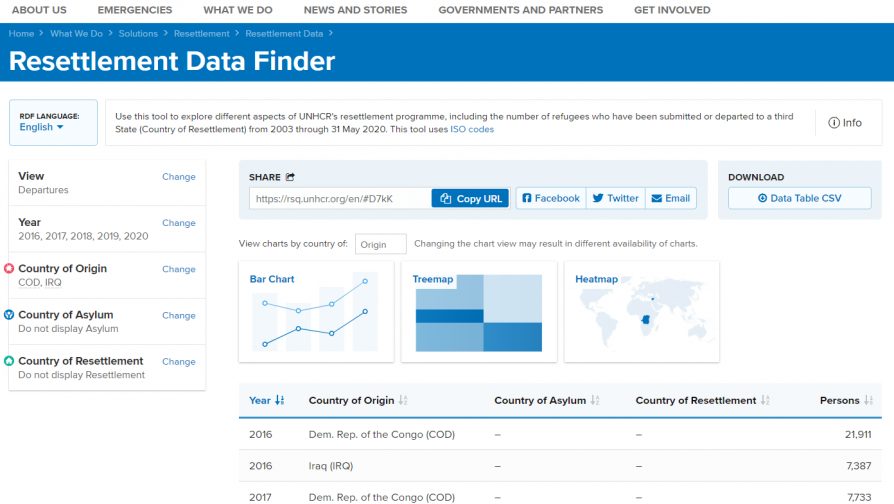
Providing statistics on resettlement, including countries of origin, countries of asylum and countries of resettlement. The dataportal is updated monthly. Link here.
News and activities on Resettlement
Syrian boy takes incredible path from refugee to red carpet
Zain Al Rafeaa’s childhood as a refugee in Beirut inspired his lead role in the award-winning movie Capernaum, transporting him to the glitz of Cannes and beyond.
From boat refugee to successful restaurant owner
Anh Lê, the owner of the popular LêLê restaurants in Copenhagen, was resettled in Denmark from a refugee camp in 1979.
UNHCR’s observations on Danish proposal for new resettlement scheme
UNHCR, the UN Refugee Agency, has submitted observations to the Danish government’s proposed amendments to the Aliens Act, introducing a new resettlement system. The amendments introduce a conditional quota scheme effective from 2018. Denmark’s...

